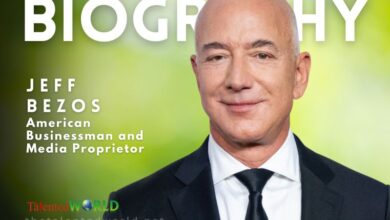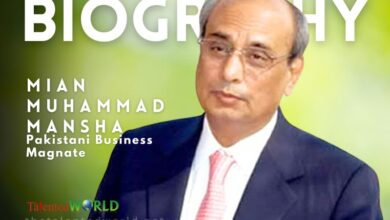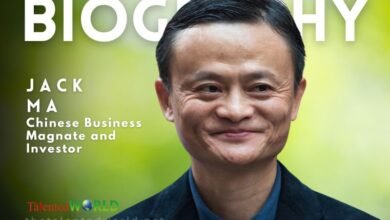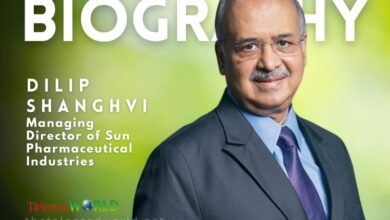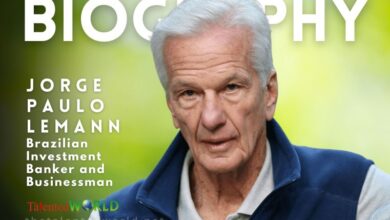
Photo: Gavin Peters / CC BY-SA (https://creativecommons.org/licenses/by-sa/3.0)
Table of Contents
ToggleQUICK FACTS
Full Name: Charles de Ganahl Koch
Born: November 1, 1935 (age 85)
Born Place: Wichita, Kansas, U.S.
Education: Massachusetts Institute of Technology
Occupation: Businessman
Employer: Koch Industries
Net worth: Increase US$ 60.6 Billion (March 25th, 2021)
Title: Chairman and CEO of Koch Industries
Political party: Libertarian
Spouse(s): Liz Koch (m. 1972)
Children: Chase Koch | Elizabeth Koch
Parent(s): Fred C. Koch
Mary Robinson
Relatives: Frederick R. Koch (brother)
David Koch (brother)
Bill Koch (brother)
BIOGRAPHY
Charles de Ganahl Koch ( born November 1, 1935) is an American billionaire businessman and philanthropist. As of March 2020, he was ranked as the 18th-richest person in the world, with an estimated net worth of $38.2 billion. Koch has been co-owner, chairman, and chief executive officer of Koch Industries since 1967, while his late brother David Koch served as executive vice president. Charles and David each owned 42% of the conglomerate. He was also mentioned in Saving Capitalism. The brothers inherited the business from their father, Fred C. Koch, then expanded the business.
Originally involved exclusively in oil refining and chemicals, Koch Industries now includes process and pollution control equipment and technologies, polymers and fibers, minerals, fertilizers, commodity trading and services, forest and consumer products, and ranching. The businesses produce a wide variety of well-known brands, such as Stainmaster carpet, the Lycra brand of spandex fiber, Quilted Northern tissue, and Dixie Cup.
Koch Industries is the largest privately held company by revenue in the United States, according to Forbes. In February 2014, Koch was ranked 9th richest person in the world by Hurun Report with an estimated net worth of $36 billion. Previously, in October 2012, he was ranked the 6th richest person in the world with an estimated net worth of $34 billion—according to the Bloomberg Billionaires Index—and was ranked 18th on Forbes World’s Billionaires list of 2011 (and 4th on the Forbes 400), with an estimated net worth of $25 billion, deriving from his 42% stake in Koch Industries. Koch has published three books detailing his business philosophy, The Science of Success, Market Based Management, and Good Profit.
Koch also supports a number of libertarian educational organizations, including the Institute for Humane Studies, the Ayn Rand Institute, and the Mercatus Center at George Mason University. He also contributes to the Republican Party and candidates, libertarian groups, and various charitable and cultural institutions. He co-founded the Washington, D.C.-based Cato Institute. Through the Koch Cultural Trust, founded by Charles Koch’s wife, Elizabeth, the Koch family has also funded artistic projects and creative artists. Along with his brother, Koch has been an important funder of think tanks that lobby to oppose environmental regulation.
EARLY LIFE
Koch was born and lives in Wichita, Kansas, one of four sons of Clementine Mary (née Robinson) and Fred Chase Koch. Koch’s grandfather, Harry Koch, was a Dutch immigrant who settled in West Texas, founded the Quanah Tribune-Chief newspaper, and was a founding shareholder of Quanah, Acme and Pacific Railway. Among his maternal great-great-grandparents were William Ingraham Kip, an Episcopal bishop, William Burnet Kinney, a politician, and Elizabeth Clementine Stedman, a writer.
In an interview with Warren Cassell Jr., which was recorded in February 2016, Koch stated that as a child he did not live a privileged lifestyle despite growing up in a wealthy family. Koch said, “My father wanted me to work as if I was the poorest person in the world.” After attending several private high schools, Koch was educated at the Massachusetts Institute of Technology. He is a member of the Beta Theta Pi fraternity. He received a Bachelor of Science (B.S.) in General Engineering in 1957, a Master of Science (M.S.) in Nuclear Engineering in 1958, and a second M.S. in Chemical Engineering in 1960. His focus was on ways to refine oil.
After college, Koch started work at Arthur D. Little, Inc.
CAREER
In 1961 he moved back to Wichita to join his father’s business, Rock Island Oil & Refining Company (now known as Koch Industries). In 1967, he became president of the business, which was then a medium-sized oil firm. In the same year, he renamed the firm Koch Industries in honor of his father. Charles’s brothers Frederick and Bill had inherited stock in Koch Industries. In June 1983, after a legal and boardroom battle, the stakes of Frederick and Bill were bought out for $1.1 billion and Charles and his younger brother David became majority owners in the company. Despite the settlement, legal disputes continued until May 2001, when CBS News reported that Koch Industries settled for $25 million.
In 2006, Koch Industries generated $90 billion in revenue, a growth of 2000 times over, which represents an annual compounded return of 18%. As of 2014, Koch was worth approximately $41.3 billion (in 2013 $36 billion) according to the Forbes 400 list. Koch would routinely work 12-hour days at the office (and then spent more time working at home), weekends, and expected executives at Koch Industries to work weekends as well.
Koch has been a director of INTRUST Financial Corp. since 1982 and director of Koch Industries Inc. since 1982. He is director of resin and fiber company Invista and director of Georgia-Pacific LLC, paper and pulp products. Koch founded or helped found several organizations, including the Cato Institute, the Institute for Humane Studies and the Mercatus Center at George Mason University, the Bill of Rights Institute, and the Market-Based Management Institute. He is a member of the Mont Pelerin Society.
PERSONAL LIFE
Koch has received various awards and honors, including:
- Honorary Doctor of Science, from George Mason University, for his continued support of the economics program at GMU
- Honorary Doctor of Commerce from Washburn University
- Honorary Doctor of Laws from Babson College
- President’s Medal from Wichita State University in 2004
- The Adam Smith Award from the American Legislative Exchange Council
- The 1999 Directors’ Award for Global Vision in Energy from the New York Mercantile Exchange
- The 1999 Governor’s Arts Patrons Award from the Kansas Arts Commission
- The 2000 National Distinguished Service Award from The Tax Foundation
- The Spirit of Justice Award from The Heritage Foundation
- The Entrepreneurial Leadership Award from the National Foundation for Teaching Entrepreneurship
- The Brotherhood/Sisterhood Award from the National Conference of Christians and Jews
- The Distinguished Citizen Award from the Boy Scouts of America
- The Free Enterprise Award from The Council for National Policy
- The Herman W. Lay Memorial Award from the Association of Private Enterprise Education
- The Distinguished Service Citation from the University of Kansas
- Honorary Life Member in the Washburn Law School Association
- The Distinguished Citizen Award from Kansas State University
- Induction into the Kansas Oil and Gas Hall of Fame
- Induction into the Wichita and Kansas Business Halls of Fame
- Spirit of Excellence Award from The Urban League of Wichita
- Outstanding Humanitarian Award from the Greater Wichita Chapter of the National Society of Fundraising Executives
- Wichita City Medallion
- Wichita State University Entrepreneur in Residence
- Wichita District Minority Small Business Advocate of the Year
- The Individual Recognition Award from the Wichita/Sedgwick County Arts and Humanities Council
- The Uncommon Citizen Award from the Wichita Chamber of Commerce
- The 2011 William E. Simon Prize for Philanthropic Leadership from the Philanthropy Roundtable
- The 2011 Defender of Justice award from the National Association of Criminal Defense Lawyers
- In 2013, AdvisoryCloud ranked him number two on their Top Chief Executive List
The contents of this page are sourced from Wikipedia article on 25 March 2021. The contents are available under the CC BY-SA 4.0 license.


